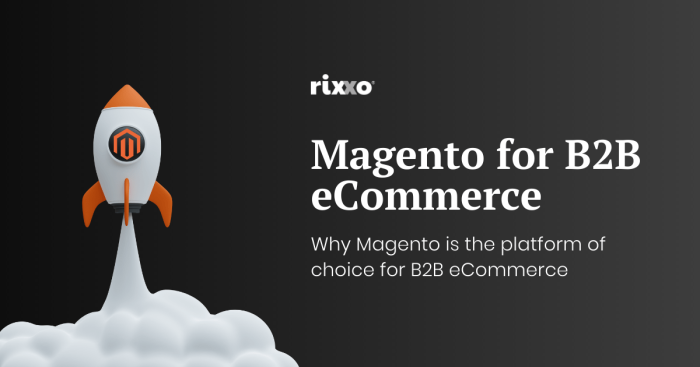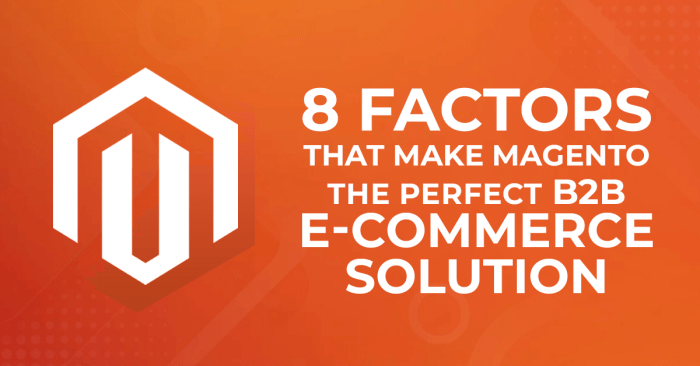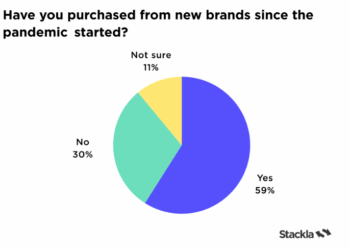Delving into the realm of "B2B Ecommerce Development with Magento Open Source," this piece invites readers to explore a world where innovation and business strategy converge to form a robust online platform. With a blend of expertise and creativity, the following paragraphs aim to provide valuable insights and practical tips for those navigating the realm of B2B Ecommerce with Magento Open Source.
The subsequent section will offer a comprehensive overview of the topic, shedding light on key concepts and best practices in the field.
Introduction to B2B Ecommerce Development with Magento Open Source
B2B Ecommerce refers to business-to-business electronic commerce, where transactions take place between businesses rather than between a business and a consumer. On the other hand, Magento Open Source is a free, open-source platform for building Ecommerce websites with a wide range of features and customization options.Using Magento Open Source for B2B businesses is significant due to its robust capabilities in handling complex B2B requirements such as bulk ordering, custom pricing, and multiple user roles.
The platform provides a scalable and flexible solution that can be tailored to meet the specific needs of B2B organizations.
Key Features of Magento Open Source for B2B Ecommerce
- Custom Pricing and Quoting: Magento Open Source allows B2B businesses to set up custom pricing based on customer segments, volume discounts, and negotiated prices.
- Multiple User Roles and Permissions: The platform supports different user roles with varying levels of access, enabling B2B organizations to manage their teams effectively.
- Advanced Catalog Management: Magento Open Source offers advanced catalog management features, making it easier for B2B businesses to organize and display their products.
- Integration Capabilities: The platform can be integrated with various third-party systems, such as ERP and CRM software, to streamline business processes and improve efficiency.
- Scalability and Performance: Magento Open Source is designed to handle high traffic volumes and large product catalogs, making it suitable for growing B2B businesses.
Setting Up a B2B Ecommerce Store with Magento Open Source
To start your journey in setting up a B2B Ecommerce store with Magento Open Source, you will need to follow a step-by-step guide to ensure a smooth and efficient process.
Installing Magento Open Source for B2B Ecommerce
When setting up Magento Open Source for your B2B Ecommerce store, follow these steps:
- Download the latest version of Magento Open Source from the official website.
- Choose a reliable hosting provider that meets Magento's system requirements.
- Upload the Magento files to your server and create a database for your store.
- Run the Magento installation wizard and follow the on-screen instructions to complete the setup.
Customization Options for B2B Stores on Magento
Magento Open Source offers a wide range of customization options for B2B stores, including:
- Customizable themes and templates to create a unique look and feel for your store.
- Advanced product catalog management tools for organizing and displaying B2B products.
- Flexible pricing and discount options to cater to the specific needs of your B2B customers.
- Integration with third-party extensions and solutions to enhance the functionality of your store.
Essential Extensions/Plugins for B2B Functionality in Magento
When setting up a B2B Ecommerce store with Magento Open Source, consider installing the following essential extensions/plugins for enhanced functionality:
- Magento B2B Extension:Provides features like customer-specific pricing, custom catalogs, and quote management for B2B customers.
- Advanced Reporting Extension:Offers detailed insights into sales, customer behavior, and product performance to optimize your B2B store.
- Payment Gateway Integration:Integrate secure payment gateways to facilitate seamless transactions for B2B customers.
- ERP/CRM Integration:Connect Magento with your ERP/CRM system for streamlined order processing and customer management.
Optimizing B2B Ecommerce Performance with Magento Open Source
Optimizing the performance of your B2B Ecommerce website is crucial for providing a seamless user experience and driving conversions. In this section, we will explore strategies to enhance the speed and responsiveness of your Magento Open Source platform.
Website Speed and Performance Optimization
- Enable Magento caching: Utilize Magento's built-in caching mechanisms to store frequently accessed data and reduce server load, improving overall website speed.
- Optimize images: Compress and resize images to reduce file size without compromising quality, ensuring faster loading times for product pages and galleries.
- Minimize HTTP requests: Combine CSS and JavaScript files, reduce unnecessary plugins, and leverage browser caching to minimize the number of HTTP requests required to load your site.
- Implement lazy loading: Load images and content as users scroll down the page, prioritizing the display of visible elements and improving initial page load times.
Importance of Mobile Responsiveness in B2B Ecommerce
- Mobile-first approach: Design your website with a focus on mobile responsiveness, ensuring that your B2B platform is accessible and user-friendly across various devices and screen sizes.
- Responsive design principles: Utilize responsive design techniques such as fluid grids, flexible images, and media queries to create a seamless browsing experience for mobile users.
- Mobile optimization: Prioritize mobile optimization to cater to the increasing number of B2B buyers who rely on smartphones and tablets for their procurement needs.
Leveraging Caching and CDNs for Improved Performance
- Content Delivery Networks (CDNs): Implement a CDN to distribute website content across multiple servers geographically, reducing latency and improving load times for users in different regions.
- Browser caching: Leverage browser caching to store static resources locally on users' devices, allowing for faster page reloads and reduced server requests.
- Full-page caching: Utilize full-page caching extensions or modules to cache entire pages and deliver pre-rendered content to users, significantly reducing server processing time.
Security Considerations in B2B Ecommerce Development with Magento Open Source

When it comes to B2B Ecommerce development with Magento Open Source, security is a top priority. Protecting sensitive business data and ensuring secure transactions is crucial for the success of any B2B online store.Identifying common security threats in B2B Ecommerce:
Common Security Threats
- Data breaches: Unauthorized access to sensitive business information can lead to financial loss and damage to reputation.
- Phishing attacks: Fraudulent attempts to obtain confidential information through deceptive emails or websites.
- DDoS attacks: Overloading a website with traffic to disrupt its availability and functionality.
Best practices for securing a Magento Open Source B2B store:
Best Practices for Security
- Regular updates: Keep Magento and all extensions up to date to patch security vulnerabilities.
- Strong passwords: Enforce password policies for users and administrators to prevent unauthorized access.
- Two-factor authentication: Implement an additional layer of security for user logins.
- Firewall protection: Use a web application firewall to monitor and filter incoming traffic.
Explaining the importance of SSL certificates and data encryption for B2B transactions:
SSL Certificates and Data Encryption
SSL certificates encrypt data exchanged between the website and the user, ensuring that sensitive information such as payment details is secure. Data encryption scrambles data to make it unreadable to unauthorized users, providing an extra layer of protection for B2B transactions.
Integrating Payment Gateways and Shipping Methods in Magento B2B Ecommerce
When setting up a B2B ecommerce store with Magento Open Source, it is crucial to integrate payment gateways and shipping methods that are tailored to the specific needs of B2B transactions. This ensures a seamless ordering and fulfillment process for your business customers.
Payment Gateway Options for B2B Transactions
Choosing the right payment gateway for B2B transactions is essential to provide secure and convenient payment options for your customers. Some popular payment gateways suitable for B2B ecommerce include:
- Authorize.Net
- Braintree
- PayPal Payments Pro
- Stripe
Integration of Shipping Methods and Carriers
Integrating shipping methods and carriers in Magento B2B ecommerce allows you to offer flexible shipping options to your business customers. You can set up shipping methods based on factors like weight, destination, or shipping speed. Some common shipping carriers for B2B orders include:
- FedEx
- UPS
- DHL
- USPS
Setting Up Invoicing and Billing Systems for B2B Customers
For B2B transactions, it is important to have a robust invoicing and billing system in place to manage transactions efficiently. In Magento, you can set up custom invoicing and billing processes tailored to the needs of your business customers. This includes generating invoices, managing billing cycles, and setting up payment terms for B2B orders.
Managing Inventory and Customer Relationships in Magento B2B Ecommerce
In B2B Ecommerce with Magento, managing inventory and customer relationships plays a crucial role in ensuring smooth operations and customer satisfaction.
Managing Bulk Orders and Inventory in Magento
- Magento allows you to efficiently manage bulk orders by setting minimum and maximum order quantities, creating custom price lists, and automating order processing.
- You can track inventory levels in real-time, set up alerts for low stock, and manage multiple warehouses or locations seamlessly.
- Utilize Magento's inventory management tools to streamline order fulfillment processes and avoid stockouts or overstock situations.
Customer Segmentation and Personalized Pricing for B2B Clients
- Segment your B2B customers based on factors like order history, purchase frequency, or industry type to offer personalized pricing and discounts.
- Implement customer-specific catalogs, pricing tiers, and promotional offers to cater to the unique needs of different client segments.
- Utilize Magento's customer segmentation features to enhance customer loyalty, increase repeat orders, and drive revenue growth.
Importance of CRM Integration for B2B Customer Relationship Management
- Integrating a CRM system with Magento enables you to centralize customer data, track interactions, and personalize communication with B2B clients.
- CRM integration allows you to create targeted marketing campaigns, automate follow-ups, and analyze customer behavior to improve retention and satisfaction.
- By syncing Magento with CRM, you can provide a seamless omnichannel experience, gain insights into customer preferences, and build stronger relationships with your B2B clientele.
Scaling and Growing Your B2B Ecommerce Business with Magento Open Source

Scaling and growing a B2B Ecommerce business on Magento requires strategic planning and implementation to meet the evolving needs of your clients. By focusing on key areas such as optimization, product offerings expansion, and service diversification, you can effectively drive growth and success in your B2B Ecommerce store.
Strategies for Scaling a B2B Ecommerce Store on Magento
When looking to scale your B2B Ecommerce store on Magento, consider implementing the following strategies:
- Invest in scalable infrastructure to handle increased traffic and transactions.
- Utilize analytics to track performance and identify areas for improvement.
- Optimize user experience to enhance customer satisfaction and retention.
- Implement automation tools to streamline processes and increase efficiency.
Benefits of Optimization for B2B Ecommerce Growth
optimization plays a crucial role in driving organic traffic to your B2B Ecommerce store and increasing visibility among potential clients. Some benefits of optimization for B2B Ecommerce growth include:
- Improved search engine rankings leading to increased website traffic.
- Enhanced brand recognition and credibility within the industry.
- Higher conversion rates as a result of targeted and relevant traffic.
- Long-term sustainability and cost-effectiveness compared to paid advertising.
Expanding Product Offerings and Diversifying Services for B2B Clients
To cater to the evolving needs of B2B clients and drive growth in your Ecommerce business, consider expanding your product offerings and diversifying your services. This can be achieved by:
- Conducting market research to identify new product opportunities and trends.
- Collaborating with suppliers to introduce exclusive products or services.
- Personalizing offerings based on client preferences and feedback.
- Introducing value-added services such as customization, installation, or maintenance.
Ultimate Conclusion
In conclusion, the journey through the intricacies of B2B Ecommerce Development with Magento Open Source reveals a landscape ripe with opportunities for growth and success. By leveraging the power of Magento Open Source and implementing strategic approaches, businesses can elevate their online presence and drive sustainable growth in the competitive B2B market.
Expert Answers
How can Magento Open Source benefit B2B businesses?
Magento Open Source offers robust features specifically designed for B2B Ecommerce, such as custom pricing, quote management, and bulk ordering capabilities, making it a versatile platform for B2B operations.
What are some recommended security measures for a Magento Open Source B2B store?
Implementing SSL certificates, regular security audits, and using secure payment gateways are essential steps to enhance the security of a Magento Open Source B2B store.
How can businesses effectively scale their B2B Ecommerce operations on Magento?
By focusing on optimization, expanding product offerings, and leveraging customer relationship management tools, businesses can successfully scale their B2B Ecommerce operations on Magento.











